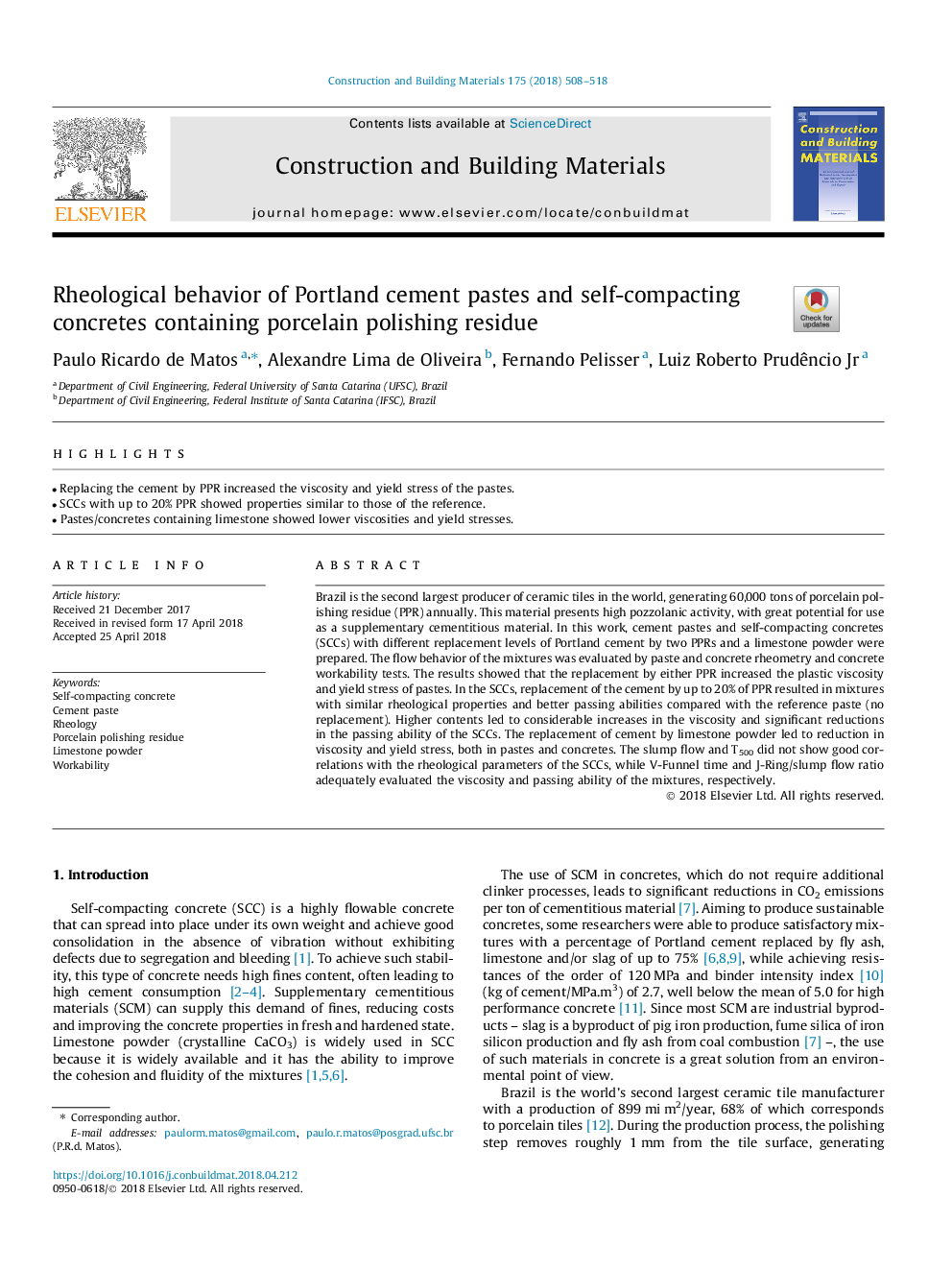| Article ID | Journal | Published Year | Pages | File Type |
|---|---|---|---|---|
| 6713579 | Construction and Building Materials | 2018 | 11 Pages |
Abstract
Brazil is the second largest producer of ceramic tiles in the world, generating 60,000â¯tons of porcelain polishing residue (PPR) annually. This material presents high pozzolanic activity, with great potential for use as a supplementary cementitious material. In this work, cement pastes and self-compacting concretes (SCCs) with different replacement levels of Portland cement by two PPRs and a limestone powder were prepared. The flow behavior of the mixtures was evaluated by paste and concrete rheometry and concrete workability tests. The results showed that the replacement by either PPR increased the plastic viscosity and yield stress of pastes. In the SCCs, replacement of the cement by up to 20% of PPR resulted in mixtures with similar rheological properties and better passing abilities compared with the reference paste (no replacement). Higher contents led to considerable increases in the viscosity and significant reductions in the passing ability of the SCCs. The replacement of cement by limestone powder led to reduction in viscosity and yield stress, both in pastes and concretes. The slump flow and T500 did not show good correlations with the rheological parameters of the SCCs, while V-Funnel time and J-Ring/slump flow ratio adequately evaluated the viscosity and passing ability of the mixtures, respectively.
Related Topics
Physical Sciences and Engineering
Engineering
Civil and Structural Engineering
Authors
Paulo Ricardo de Matos, Alexandre Lima de Oliveira, Fernando Pelisser, Luiz Roberto Prudêncio Jr,
